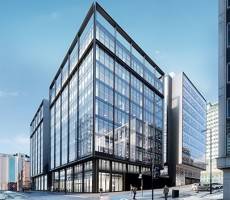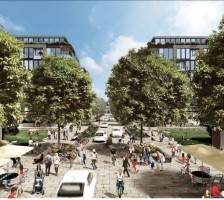May 4, 2016
Brexit debate having negligible effect on regional office market 0
 Demand for office space in the UK regional office markets has remained strong for the first quarter of this year, despite uncertainties surrounding a potential Brexit. A total of 1,381,350 sq ft of office space was taken in the ‘Big 6’ regional cities in the Jan-April period, just marginally below the final quarter performance of 2015 but 27 percent higher than the five quarterly average, CBRE has revealed. The leading cities in terms of year-to-date take-up are Birmingham, Edinburgh and Glasgow, with total volumes of around the 285,000 sq ft mark in each of these three cities. All of these markets have substantially outperformed their five year quarterly average and have each supported a strong level of pre-letting activity. In the case of Glasgow, the volume for the beginning of 2016 has been twice the quarterly average. The strong start in this market is the result of Morgan Stanley signing a large pre-let for 154,814 sq ft at the first phase of Bothwell Exchange.
Demand for office space in the UK regional office markets has remained strong for the first quarter of this year, despite uncertainties surrounding a potential Brexit. A total of 1,381,350 sq ft of office space was taken in the ‘Big 6’ regional cities in the Jan-April period, just marginally below the final quarter performance of 2015 but 27 percent higher than the five quarterly average, CBRE has revealed. The leading cities in terms of year-to-date take-up are Birmingham, Edinburgh and Glasgow, with total volumes of around the 285,000 sq ft mark in each of these three cities. All of these markets have substantially outperformed their five year quarterly average and have each supported a strong level of pre-letting activity. In the case of Glasgow, the volume for the beginning of 2016 has been twice the quarterly average. The strong start in this market is the result of Morgan Stanley signing a large pre-let for 154,814 sq ft at the first phase of Bothwell Exchange.





































May 5, 2016
The problems that come with London’s success need better solutions 0
by Mark Eltringham • Architecture, Cities, Comment
(more…)